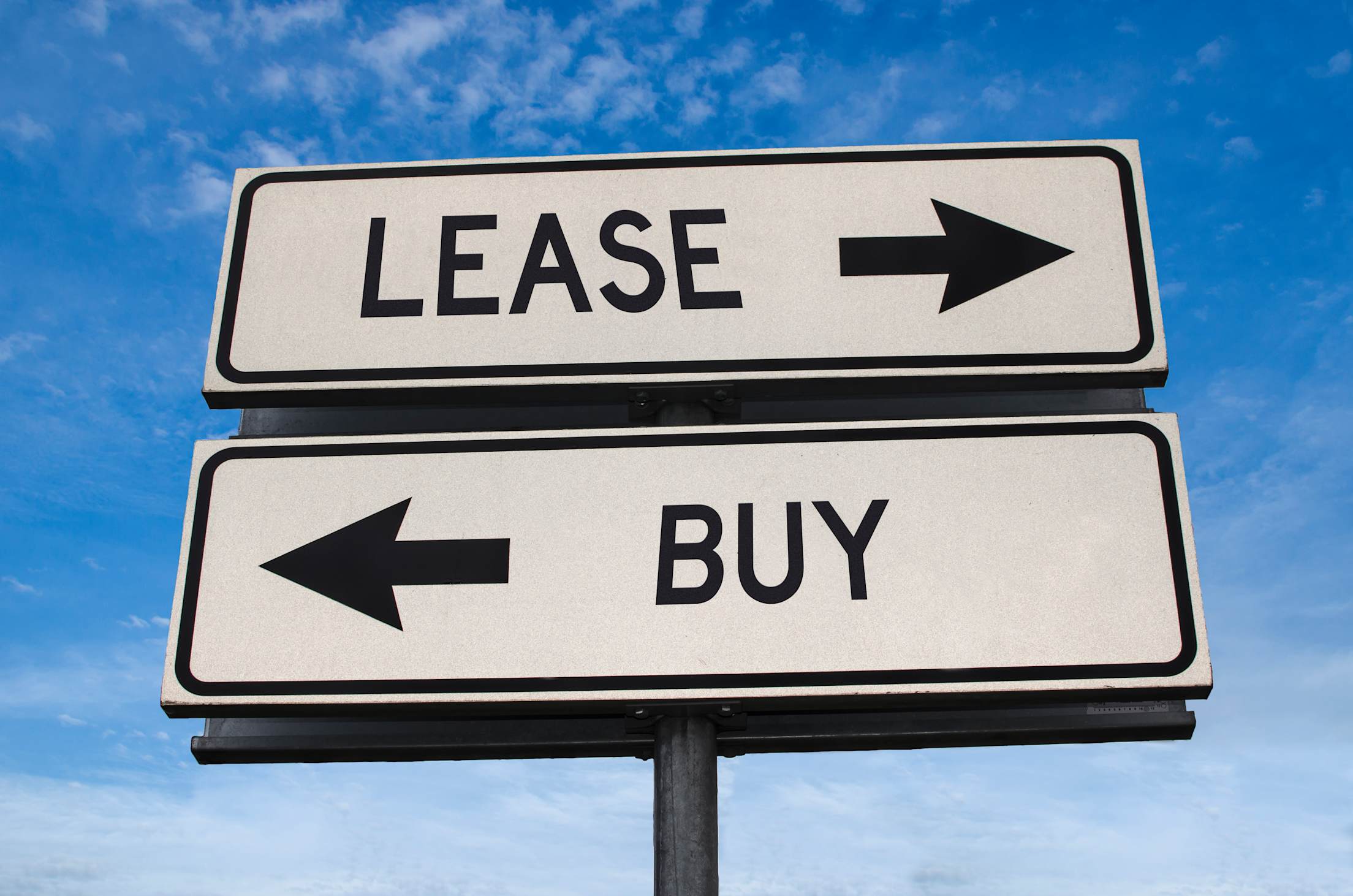Lease or Buy an EV?
Maximizing savings and minimizing hassles

I get asked about electric vehicles (EVs) all the time. Most answers are easy.
Are EVs better for the planet than gas cars? (Yes!)
Will EVs cause the power grid to collapse? (No!)
But one question is tricky: Should I buy or lease?
To answer with confidence, you should understand the pros and cons of leasing or buying any vehicle – electric or not.

IS IT BETTER TO BUY OR LEASE?
Some pros and cons apply to leasing any vehicle, gas or electric.
- Leasing typically requires a high credit score. Dealers and lenders are more flexible when you are buying. Leasing can mean a smaller down payment and smaller monthly payments, especially if you drive 10,000 miles or less each year.
- Buying is preferable if you’re not comfortable with the fact that you won’t own your vehicle at the end of your lease.
- Buying is also preferable if you don’t want to worry about mileage restrictions or potential wear and tear penalties that may come with leasing. And you can add hitches for bike racks and rails for cargo tops, which you typically can’t do on a leased vehicle.
PROS OF LEASING AN EV
The biggest pro of leasing an EV is rooted in IRS guidelines for obtaining a $7,500 federal tax credit. Almost any leased EV qualifies, although it’s up to the dealer (and/or financing entity) to pass along that $7,500 to you.
Some dealers will not, so before you sign an EV lease agreement, confirm with the dealer that you are receiving the $7,500 benefit, either upfront or in discounted monthly payments.
Note that ordinary gas-powered vehicles do not qualify for this credit — That is a great reason to lease an EV instead of a vehicle that runs on fuel.
FIVE GREAT REASONS TO LEASE AN EV
- EV technology is advancing quickly. New advancements are quickly coming to the market, like leveraging an EV to power your home during an emergency. Improvements in range and charging speed continue, so why purchase an EV now when its technology is always evolving?
- EVs are getting cheaper. Many EVs are already superior to gas cars in terms of total cost-of-ownership. Soon, the cost of acquiring an EV will be lower than a comparable gas car, with experts predicting a crossover point in 2025. Lease an EV now, then plan on leasing or buying a more affordable and advanced EV in just a few years.
- Get immediate savings. As mentioned above, when you lease an EV, the credit can be built into the lease agreement up front, provided the dealer agrees. That can mean $7,500 off your monthly payments – no paperwork, no waiting.
- Pocket cash at the end. The used EV market is thriving, so take advantage of the terms of your lease . If your EV’s expected value is higher at the end of its lease , you may have the option to buy (in most cases) and resell at a higher price for profit.
- Take advantage of federal tax credits on almost any leased EV. There are restrictions on tax credits for EVs – but those restrictions apply to buying an EV, not leasing. If you lease, there are no limits on vehicle models, price of models, or your income.
LIMITATIONS OF BUYING AN EV
Buying an EV has some limitations.
- Limited selection: If you purchase an EV, only around a dozen qualify for the federal tax credit, while more than 50 EVs qualify for the lease credit.
- More restrictions: Buying an EV means that IRS income limits and price thresholds apply to both the buyer and the vehicle. If your income exceeds certain limits or if; you want to purchase an EV above a specific price range, you may not qualify for the federal tax credit.
CONCLUSION – LEASING AN EV IS THE WAY TO GO
Leasing an EV offers benefits that are hard to ignore, like access to the latest technology, the maximum federal tax credit, and immediate savings without filling out forms and waiting for a refund.
Moreover, when people admire your new EV and inquire about buying versus leasing, you know the answer!
Editor’s note: Please visit these EV Resources (/automotive/ev-electric-cars) and Ride and Drive Clean (https://www.rideanddriveclean.org) for the latest news on EV incentives, credits, and rebates. To learn more about qualifying for tax credits, visit the IRS website.